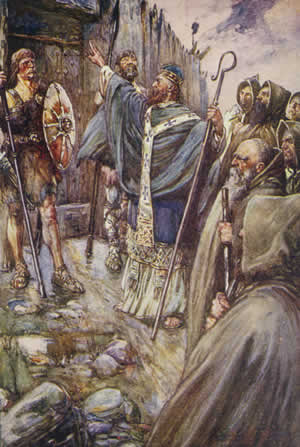563
Appearance
| Millennium: | 1st millennium |
|---|---|
| Centuries: | |
| Decades: | |
| Years: |
| 563 by topic |
|---|
| Leaders |
| Categories |
| Gregorian calendar | 563 DLXIII |
| Ab urbe condita | 1316 |
| Armenian calendar | 12 ԹՎ ԺԲ |
| Assyrian calendar | 5313 |
| Balinese saka calendar | 484–485 |
| Bengali calendar | −30 |
| Berber calendar | 1513 |
| Buddhist calendar | 1107 |
| Burmese calendar | −75 |
| Byzantine calendar | 6071–6072 |
| Chinese calendar | 壬午年 (Water Horse) 3260 or 3053 — to — 癸未年 (Water Goat) 3261 or 3054 |
| Coptic calendar | 279–280 |
| Discordian calendar | 1729 |
| Ethiopian calendar | 555–556 |
| Hebrew calendar | 4323–4324 |
| Hindu calendars | |
| - Vikram Samvat | 619–620 |
| - Shaka Samvat | 484–485 |
| - Kali Yuga | 3663–3664 |
| Holocene calendar | 10563 |
| Iranian calendar | 59 BP – 58 BP |
| Islamic calendar | 61 BH – 60 BH |
| Javanese calendar | 451–452 |
| Julian calendar | 563 DLXIII |
| Korean calendar | 2896 |
| Minguo calendar | 1349 before ROC 民前1349年 |
| Nanakshahi calendar | −905 |
| Seleucid era | 874/875 AG |
| Thai solar calendar | 1105–1106 |
| Tibetan calendar | 阳水马年 (male Water-Horse) 689 or 308 or −464 — to — 阴水羊年 (female Water-Goat) 690 or 309 or −463 |

Year 563 (DLXIII) was a common year starting on Monday of the Julian calendar. The denomination 563 for this year has been used since the early medieval period, when the Anno Domini calendar era became the prevalent method in Europe for naming years.
Events
[edit]By place
[edit]Byzantine Empire
[edit]- Emperor Justinian I pardons Belisarius; he orders his release from prison, and restores his properties and honours. He permits the general to live in obscurity, and gives him a veterans' pension.
- The new Hagia Sophia (cost: 20,000 pounds of gold[1]), with its numerous chapels and shrines, octagonal dome and mosaics, becomes the centre and most visible monument of Eastern Orthodoxy.
Europe
[edit]- Tauredunum event:[2] A mountain landslide into the Rhone river destroys a fort and two villages, and creates a tsunami in Lake Geneva. The wave which reaches Lausanne is thirteen metres high, and eight metres high by the time it hits Geneva. Describing the event, Marius Aventicensis writes that the tsunami "devastated very old villages with their men and cattle, it even destroyed many sacred places", and swept away "the bridge in Geneva, windmills and men".[3]
By topic
[edit]Religion
[edit]- Columba, Irish missionary monk, travels to Scotland with twelve companions. He lands on the Kintyre Peninsula, near Southend, and begins his evangelising mission to the Picts. On the island of Iona, he founds a monastery (Iona Abbey) on the west coast in the Inner Hebrides.
Births
[edit]- Andreas of Caesarea, bishop and writer (d. 637)
- Chindasuinth, king of the Visigoths (d. 653)
Deaths
[edit]- January –Cutzinas, Berber chieftain
- Hou Andu, general of the Chen dynasty (b. 520)
- Wang, empress of the Liang dynasty
References
[edit]- ^ P. Heather, The Fall of the Roman Empire: "A New History of Rome and the Barbarians", p. 283
- ^ "Lake Geneva 'may face tsunami risk'". Daily Telegraph. October 28, 2012. Retrieved October 28, 2012.
- ^ "Des chercheurs reconstituent le tsunami du lac Léman de l’an 563" Archived September 5, 2017, at the Wayback Machine, Le Monde, 28 October 2012
